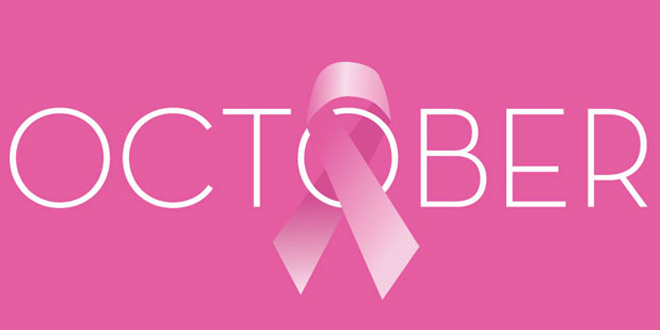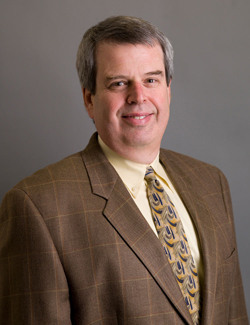
Breast Cancer Awareness
Breast Cancer. The words conjure fear and anxiety for all of us. We all have a relative or friend who has been afflicted with this and it touches our lives in a direct and personal way. October is Breast Cancer Awareness Month and our installment will discuss breast cancer and its impact on us and things everyone can do to reduce their risk.
A breast cancer diagnosis will be faced by 12.4% of women during their lifetimes. Men can also develop breast cancer but at 1 percent of the rate of women. Almost 300,000 women will be diagnosed with breast cancer this year in the US, making it the most common cancer in women after skin cancer. 40,000 of those women will die of the disease. That means that less than one out of 7 women diagnosed with breast cancer will die of the disease. Breast cancer develops from the cells in the ducts or the glands of the breast. Most of the cancers are limited to the ducts of the breast, ductal carcinoma in situ, and have an excellent prognosis.
Risk factors for breast cancer include:
- Female gender
- Increasing age
- Caucasian race
- Family or personal history of breast cancer especially if before age 50
- Early start of menses or late menopause
- Use of estrogen/progesterone after menopause
- Having no children or having children after age 30
- Increased breast density on mammogram
- Inherited gene mutation such as BRCA1 or 2
- Increased alcohol consumption
- Increased weight or obesity
- Physical inactivity
- Radiation exposure especially if under age 30
Some factors that reduce the risk of breast cancer:
- Pregnancy before age 20
- Breast feeding
- Vigorous exercise greater than 4 hours per week
- Good weight control and lower amounts of body fat
- Prophylactic mastectomy or ovary removal
Factors that have no association with breast cancer include:
- Oral contraceptives
- Specific dietary or nutritional supplements
- Cigarette smoking
- Underarm deodorants
Early diagnosis of cancer is the most important factor to beating the cancer. Mammogram is the most important test to screen for breast cancer. The American Cancer Society recommends screening mammograms starting at age 40 and continuing annually. Screening is usually ended when the person has a less than 5 year life expectancy. The radiologist will look for masses or calcifications on the mammogram as a sign that there may be a cancer present. Comparing the previous mammograms to the recent study is very important to assess for changes over time. One thing to remember is that for every 1000 mammograms performed, 2-4 will find cancer.
Breast self examination is another early detection technique. Each person will know their body better than anyone. They can see or feel new lumps or changes in their breasts, retraction of the breast or nipple, redness or scaling of the breast skin or notice a discharge from the nipple. Bringing these changes to the attention of one’s physician can lead to earlier diagnosis. One problem is that not every change is cancer and one can find changes that may lead to biopsy of areas that do not contain cancer. It is the one way that men can check for breast cancer as they usually do not have mammograms. You should perform the examination at the same time of your menstrual cycle, usually 10 days after the start or if menopausal or male, the same day every month.
Women with high risk factors such as family or personal history, genetic predisposition such as BRCA1 or 2 in themselves or close family members, previous radiation, dense breasts and others may benefit from more intensive screening such as more frequent mammograms, breast tomograms or breast MRI. There are a number of different calculators that can assess your risk. A discussion with your physician is the best way to assess your risk and how to proceed with screening.
Lifestyle choices can reduce your risk of developing breast cancer. Heart healthy is also breast healthy. Maintaining a healthy weight and regular exercise and activity are ways to reduce your risk of breast cancer and also cardiovascular disease. Getting up and moving is not difficult and you need to start with an activity level that is appropriate for you. It will improve you mood and make managing your weight easier. Watching your diet and eating healthy will make you feel better and improve your health on many levels. Alcohol consumption is also a risk factor and modest consumption is a healthy choice.
Breast cancer is very personal for Robert and me.
I was 28 years old when I found out that my mother had a lump in her breast. It was a large lump and I remember speaking to the radiologist after her mammogram and being told that it was very suspicious for cancer.
I remember talking to my mother after her biopsy and having her find out her diagnosis.
I remember seeing the concern and fear on her face when she got that news.
I remember seeing my mother the night after her mastectomy and finding out that she had spread of her cancer to her lymph nodes.
I remember she had to have post operative radiation therapy and she had problems after the radiation.
I remember she had chemotherapy and how sick she felt.
I remember her finding out that the cancer was growing despite her treatment.
I remember coming home and seeing my mother in the hospital and at home and gradually getting weaker.
I remember coming home to visit my mother for her birthday and taking her to the hospital for an infection after her chemotherapy.
I remember taking care of her during her last days.
I returned to my home and I remember receiving the phone call from my father telling me she died.
I remember seeing how her illness and death took its toll on my father as he watched the woman he loved slowly dying and there was very little he could do. .
This is a woman who was well educated, accomplished and a loving wife and mother. I remember how excited she was when my wife first found out she was pregnant but was disappointed when she had a miscarriage. She was a woman who had many things to look forward to but her breast cancer was aggressive and she lost her fight. My mom died too early and did not get to enjoy seeing her grandchildren or play with them. That would have been her greatest joy. I do not want anyone else to go through the pain and suffering my mom experienced. Take care of yourself. Spend the time to stay active and eat healthy. Go for your regular visits and be aware and educated. YOU ARE WORTH IT.
About the author:
 Dr Schutz was born in Newport News, VA and grew up in Flemington, NJ. He attended Rutgers University and New Jersey Medical School where he graduated in 1985. He was selected as a “Top Doc” in NJ Monthly Magazine and is the former President of the Medical Staff at Shore Memorial Hospital. He is married and has 3 children. He is active in religious and youth activities.
Dr Schutz was born in Newport News, VA and grew up in Flemington, NJ. He attended Rutgers University and New Jersey Medical School where he graduated in 1985. He was selected as a “Top Doc” in NJ Monthly Magazine and is the former President of the Medical Staff at Shore Memorial Hospital. He is married and has 3 children. He is active in religious and youth activities.

